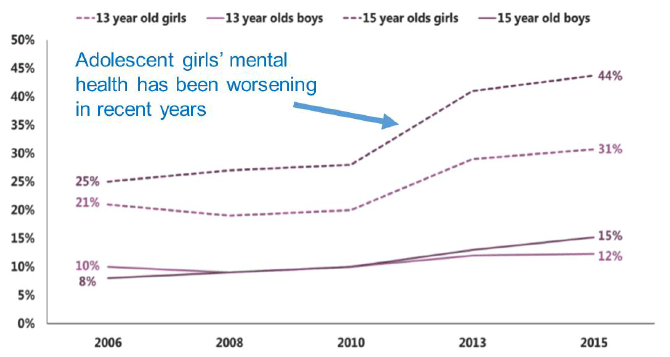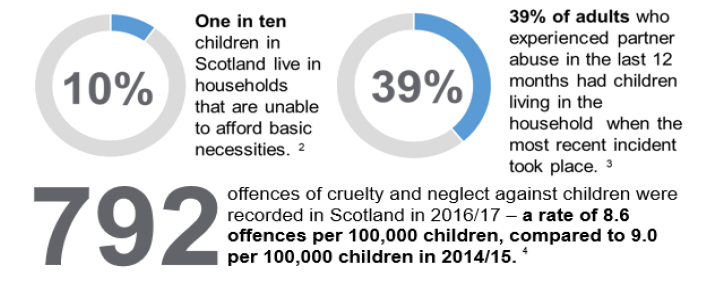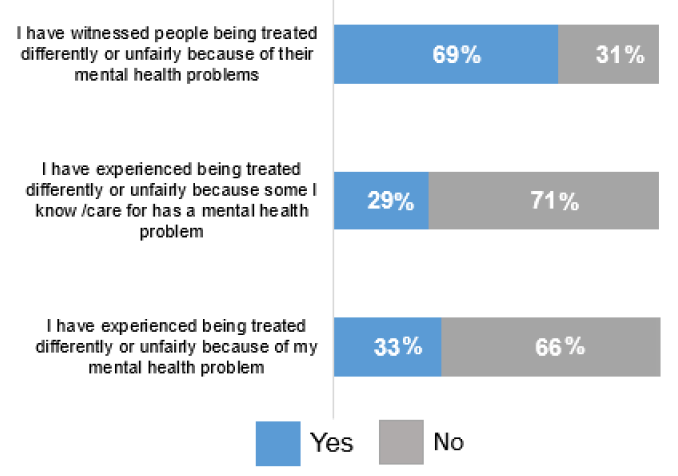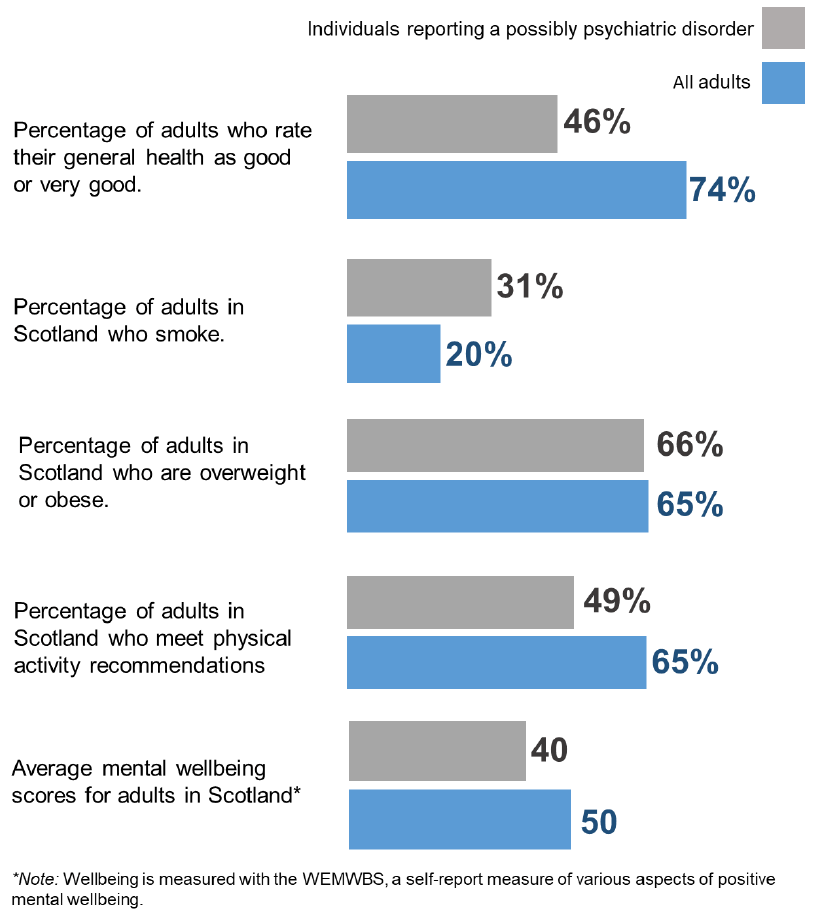Mental health strategy 2017-2027: first progress report
Our first progress report on the Mental Health Strategy 2017 to 2027.
Appendix 1: Mental Health Strategy Data Framework
Quality Indicator Profiles (Action 38) are benchmarking tools for operational improvement. They are important in helping Boards and IJBs (and partners) to look at improvement more broadly.
This is complemented by a Mental Health Strategy Framework of data illustrating population mental health and wellbeing, strategic impact and parity of esteem.
The below tables have been taken from the Mental Health Strategy data framework and Quality Indicator Profile.
1. Childhood determinants of a mentally healthy life
Percentage of children reporting por mental health in Scotland 1

Mental health is strongly influenced by experiences of adversity in childhood: 2,3,4

2. The impact of mental ill health
People with mental health problems in Scotland still experience stigma 5

3. Population mental health and wellbeing
1.259 million days are lost in Scotland due to stress, depression or anxiety caused or made worse by work 6
In 2017 the unemployment rate for people in Scotland with a mental health condition was 12% 7
26% of adults in Scotland drink at hazardous or harmful levels 8
15% of adults in Scotland have low wellbeing or a possible psychiatric disorder 9
4. Physical and mental health inequalities
Inidviduals with poor mental health experience a range of qualities: 11

5. References
Childhood determinants of a mentally healthy life
1 Scottish Government (2017) Scottish Schools Adolescent Lifestyle Use Survey (SALSUS) 2015: Mental Wellbeing Report
2 UK Department for Work and Pensions, Family Resources Survey, 2016/17
3 Scottish Government (2016) Scottish Crime and Justice Survey 2014/15: Partner Abuse.
4 NSPCC (2018) How Safe Are Our Children?
Impact of mental ill health
5 Scottish Health Council (2018) Our Voice Citizens’ Panel, Survey on HIV awareness, mental health and wellbeing and inclusive communication, 4 th Survey Report, May 2018
6 Health and Safety Executive (2017) Estimated days lost per (full-time equivalent) worker due to self-reported stress, depression or anxiety caused or made worse by work, for people working in the last 12 months, Scotland, 3 year average (2014/15- 2016/17). Data from Labour Force Survey.
7 Office for National Statistics, Annual Population Survey 2017 Population mental health and wellbeing
8 Scottish Government (2017) The Scottish Health Survey 2016, Table 1.1 Estimated usual weekly alcohol consumption level
9 Scottish Government (2017) The Scottish Health Survey 2016, Table 8.4 GHQ12 scores
10 Office for National Statistics (2018) Personal well-being in the UK: January to December 2017, with analysis by country
Parity of physical and mental health
11 Scottish Government. Scottish Health Survey, 2016.
Contact
Email: Lisa.Cunningham2@gov.scot
There is a problem
Thanks for your feedback